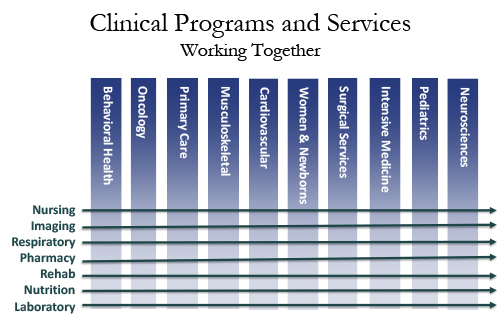Our Take Distractions in the OR are associated with higher mental workload and stress and poorer teamwork among OR personnel, a study finds. The most prevalent distractions were those from external staff, followed by case-irrelevant conversations. Case-irrelevant conversations initiated by surgeons were associated with lower teamwork in surgeons and anesthesiologists. Equipment-related…

As payment models move from fee-for-service to value-based care, hospitals and healthcare systems are trying to reduce spending by 20% to 30% to maintain their budgets. Supply costs are usually the second largest expense after labor, and industry analysts predict they will take the top slot by 2020. In 2013,…
Avoiding preventable harm in the OR is the goal of any surgical services department, and meeting that goal requires excellent communication and collaboration among staff members. At Cedars-Sinai Medical Center in Los Angeles, the Safe Care in the OR Everytime (SCORE) project has raised awareness about safety and engaged front-line…
An emergency situation in the OR can rattle even the most experienced surgeons, anesthesiologists, and staff. To help reduce anxiety and prompt a more effective response to emergencies, clinicians increasingly are turning to cognitive aids. These cognitive aids, routinely used for years in aviation and other high-hazard industries, are an…
Relations between the OR and the sterile processing department (SPD) are not always smooth. OR staff need timely, accurate instrument trays that meet the highest standards of safety. Anything short of 100% performance leads to complaints about the SPD. But many OR staff members do not appreciate the challenges faced…
Providing dependably excellent care for all patients all of the time is the essence of high reliability healthcare, as defined by the Joint Commission in its 2013 report. Two large health systems—Kaiser Permanente and Cincinnati Children’s Hospital—are on the path to becoming highly reliable organizations. In recent years, improved processes…
As the anesthesiologist places the mask on the little girl’s face, the circulating nurse snaps a photograph and sends it to her parents’ cell phone with a caption saying, “she is safely off to sleep.” The nurse continues to send photographs and videos of the girl’s heart procedure along with…
Privacy violations, work distractions, wasting time—with all these risks, who needs social media? You do. Social media is key for OR leaders to successfully manage their professional lives. Savvy leaders accept that social media is a two-sided coin. “The reality is that every post, Tweet, and text is filled with…
Staff in the OR must be fully engaged each day to ensure they are providing excellent patient care. But finding time to develop that engagement is particularly challenging for OR leaders. “The OR environment is intense and dynamic, changing minute by minute,” says Amy Bethel, MPA, RN, NE-BC, from UnityPoint…
Children’s Hospital of Los Angeles (CHLA) is renowned for patient care, but by early 2013 the increased complexity of new technology and other factors had eroded efficiency. Orthopedics had fallen to the bottom quartile compared to national benchmarks for turnover times, and executive leadership called for change. Within orthopedic surgery,…